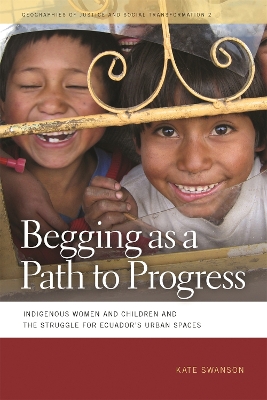This title looks at challenging prejudices about the women and children who beg in Ecuadorian cities. In 1992, Calhuasi, an isolated Andean town, got its first road. Newly connected to Ecuador's large cities, Calhuasi experienced rapid social-spatial change, which Kate Swanson richly describes in ""Begging as a Path to Progress"". Based on nineteen months of fieldwork, Swanson's study pays particular attention to the ideas and practices surrounding youth. While begging seems to be inconsistent with - or even an affront to - ideas about childhood in the developed world, Swanson demonstrates that the majority of income earned from begging goes toward funding Ecuadorian children's educations in hopes of securing more prosperous futures. Examining beggars' organized migration networks, as well as the degree to which children can express agency and fulfill personal ambitions through begging, Swanson argues that Calhuasi's beggars are capable of canny engagement with the forces of change. She also shows how frequent movement between rural and urban Ecuador has altered both, masculinizing the countryside and complicating the Ecuadorian conflation of whiteness and cities. Finally, her study unpacks ongoing conflicts over programs to 'clean up' Quito and other major cities, noting that revanchist efforts have had multiple effects - spurring more dangerous transnational migration, for example, while also providing some women and children with tourist-friendly local spaces in which to sell a notion of Andean authenticity.
- ISBN13 9780820334653
- Publish Date 30 March 2010
- Publish Status Active
- Publish Country US
- Imprint University of Georgia Press
- Format Paperback
- Pages 160
- Language English
